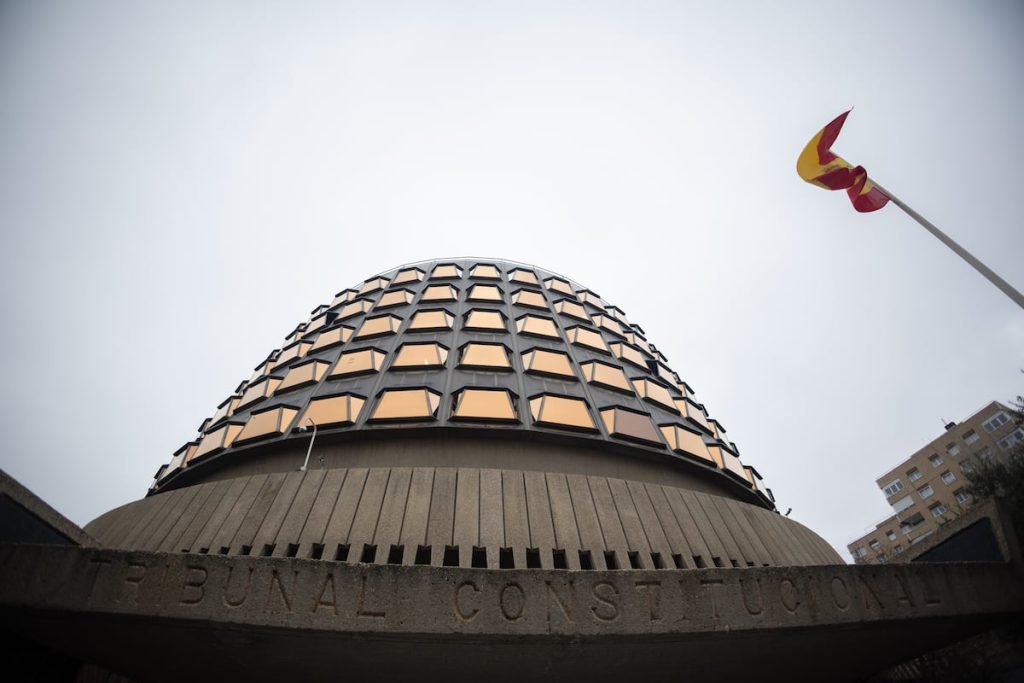The Constitutional Court has reinforced the old legal principle of in dubio pro reo – which establishes that in case of doubt and lack of sufficient evidence, judgment is made in favor of the accused – by granting protection to the manager of a ceramic company who was tried for a second time after being acquitted of an environmental crime. The case analyzed by the TC is that of an acquittal issued by the Criminal Court of Castellón, appealed by the prosecutor, which led the Provincial Court to order a retrial considering that the judge’s arguments in favor of the existence of a “reasonable doubt” about the facts and the guilt of the accused were not enough to exempt him from responsibility. The manager, in turn, sought protection from the Constitutional Court, and the oversight body supported his claim to give full value to his acquittal. The ruling is significant because after a long deliberation, the oversight body has estimated by ten votes to one that the Castellón Provincial Court “exceeded its powers of review, trying to impose its assessment of the evidence over that made in the first instance”, that is, by the Criminal judge.
The ruling of the Constitutional Court – of which Justice Juan Carlos Campo, former Minister of Justice, has been the rapporteur – contains an important doctrine in favor of the right to the presumption of innocence, which seeks to clearly delineate the areas that correspond to the judge when issuing the first judgment and to the higher body when reviewing it. The oversight body argues that “the examination of the appeal judgment leads to appreciate (…) that the reasoning that justified the revocation of the acquittal implies, in fact, a direct questioning of the reasoned reasonable doubt about the facts expressed by the judge of the instance”. The higher body, therefore, acted “ignoring […] the genuine content of the presumption of innocence of the appellant, whose strength prevents an exhaustive account reasoned by another of a different sign”. The Constitutional Court has considered, in substance, that the “reasonable doubt” of the judge who issued the first ruling was fully justified. And to explain it, it states that the Criminal Court of Castellón acquitted the appellant, manager of a company whose emissions (detected and measured in 2002) exceeded environmental and health protection limits allowed, according to the accusations. However – and this is important – the court adds that “the acquittal was supported by reasoned doubts about the impact that these emissions had on natural systems and people’s health”, because the experts who testified at the trial gave contradictory opinions in this regard.
What the oversight body seeks with its resolution is for each instance to act in accordance with its respective attributions. And that is why it considers that the Castellón Provincial Court exceeded its powers, because it replaced the Criminal judge trying to “impose its assessment” on the evidence presented in the first trial. Instead, it should have confined its work to “conduct an external assessment of the coherence, sufficiency, and reasonableness of the acquittal decision” in case it was arbitrary, unreasonable, or supported by “a patent factual error”. As this was not the case, the Constitutional Court considers that the Castellón Court violated the rights to effective judicial protection and to the presumption of innocence of the plaintiff, and agrees to annul the appeal judgment, declaring the firmness of the Criminal judge, the first instance. The dissenting vote on this resolution is that of Judge Concepción Espejel, a criminal law expert, former president of the Criminal Chamber of the National Court. Her thesis is that the capacity of the higher body to review what the lower one has done cannot be limited so much. This limitation, she adds, “does not correspond to the nature of the criminal appeal as an ordinary remedy, which legally allows for a comprehensive review of both the trial of fact and the trial of law”.


